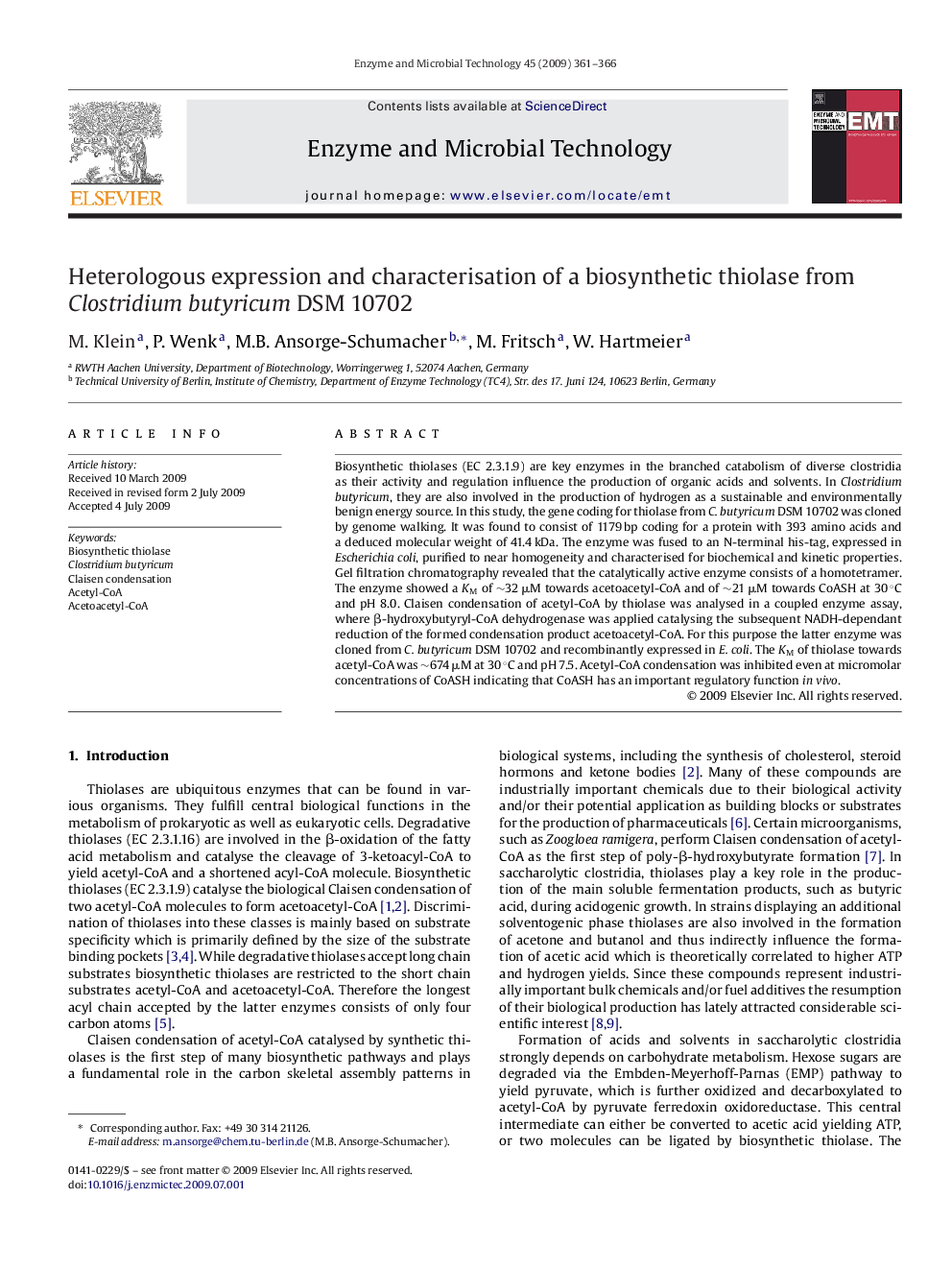| Article ID | Journal | Published Year | Pages | File Type |
|---|---|---|---|---|
| 17805 | Enzyme and Microbial Technology | 2009 | 6 Pages |
Biosynthetic thiolases (EC 2.3.1.9) are key enzymes in the branched catabolism of diverse clostridia as their activity and regulation influence the production of organic acids and solvents. In Clostridium butyricum, they are also involved in the production of hydrogen as a sustainable and environmentally benign energy source. In this study, the gene coding for thiolase from C. butyricum DSM 10702 was cloned by genome walking. It was found to consist of 1179 bp coding for a protein with 393 amino acids and a deduced molecular weight of 41.4 kDa. The enzyme was fused to an N-terminal his-tag, expressed in Escherichia coli, purified to near homogeneity and characterised for biochemical and kinetic properties. Gel filtration chromatography revealed that the catalytically active enzyme consists of a homotetramer. The enzyme showed a KM of ∼32 μM towards acetoacetyl-CoA and of ∼21 μM towards CoASH at 30 °C and pH 8.0. Claisen condensation of acetyl-CoA by thiolase was analysed in a coupled enzyme assay, where β-hydroxybutyryl-CoA dehydrogenase was applied catalysing the subsequent NADH-dependant reduction of the formed condensation product acetoacetyl-CoA. For this purpose the latter enzyme was cloned from C. butyricum DSM 10702 and recombinantly expressed in E. coli. The KM of thiolase towards acetyl-CoA was ∼674 μM at 30 °C and pH 7.5. Acetyl-CoA condensation was inhibited even at micromolar concentrations of CoASH indicating that CoASH has an important regulatory function in vivo.
